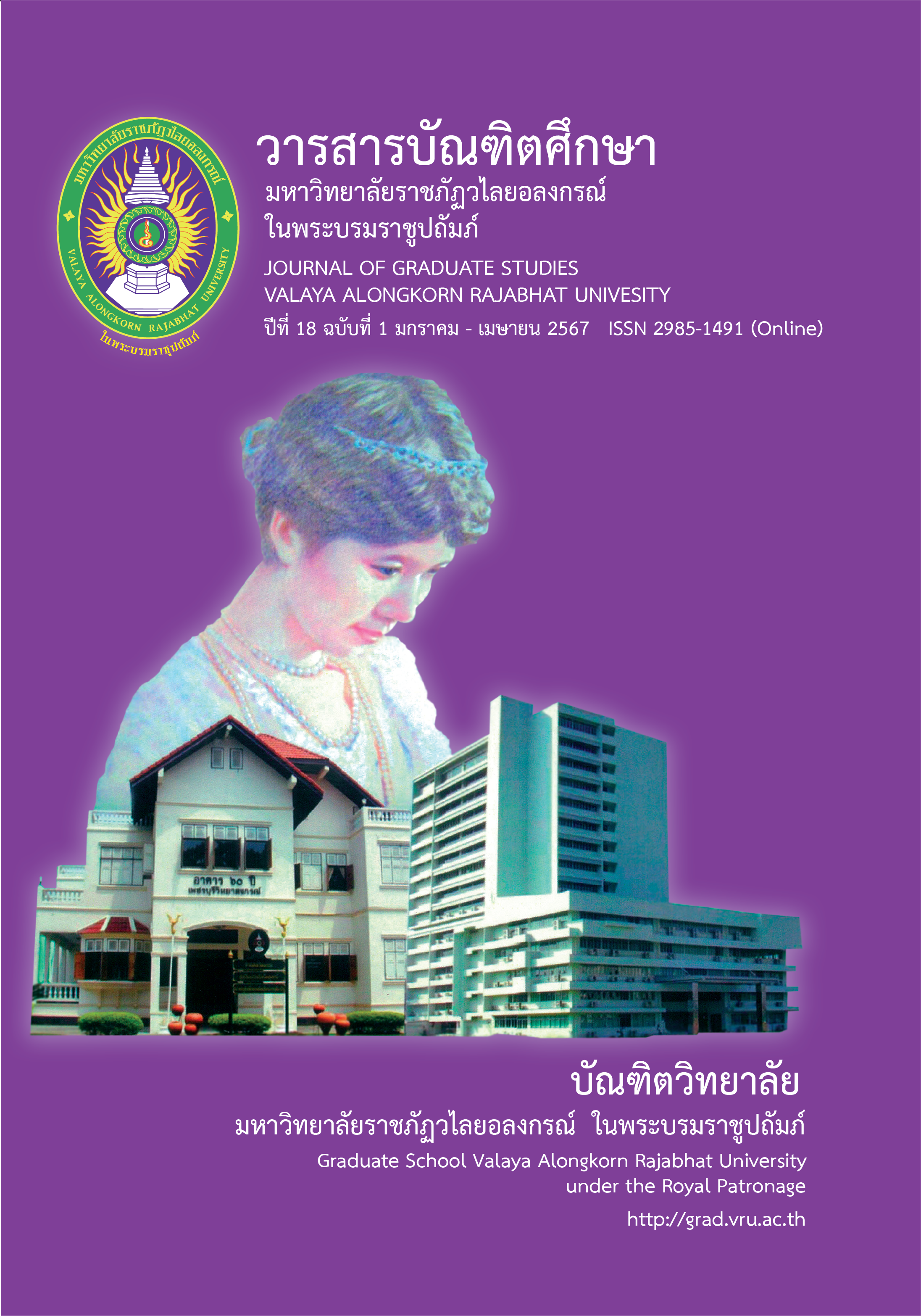INNOVATION MANAGEMENT OF THE HOTEL BUSINESS IN PHUKET TO DEAL WITH THE COVID-19 OMICRON SPECIES EPIDEMIC ISSUE
Main Article Content
Abstract
The study aims to 1) Innovative capital of hotel business in Phuket and 2) study guidelines for setting innovation boundaries of hotel business in Phuket in response to the COVID-19 pandemic crisis. This is a qualitative research using the grouned theory methodology. Using key informants who are hotel managers and a total of 18 service beneficiaries, as well as non-participant observation approaches, data was gathered.
The study's findings revealed that 1) innovation capital is a hotel resource that is critical for business operations during times of the COVID-19 pandemic crisis: 1.1) physical innovation capital, 1.2) human resource innovation capital, 1.3) financial innovation capital, and 2) scope of Innovation is like building a strategy for a hotel business group, which can be divided into 5 aspects: 2.1) new product lines, 2.2) completely new product, 2.3) improvement to existing product, 2.4) cost reduction, and 2.5) product re-positioning.
Article Details

This work is licensed under a Creative Commons Attribution-NonCommercial-NoDerivatives 4.0 International License.
บทความทุกเรื่องได้รับการตรวจความถูกต้องทางวิชาการโดยผู้ทรงคุณวุฒิ ทรรศนะและข้อคิดเห็นในบทความ Journal of Global of Perspectives in Humanities and Social Sciences (J-GPHSS) มิใช่เป็นทรรศนะและความคิดของผู้จัดทำจึงมิใช่ความรับผิดชอบของบัณฑิตวิทยาลัย มหาวิทยาลัยราชภัฏวไลยอลงกรณ์ ในพระบรมราชูปถัมภ์ กองบรรณาธิการไม่สงวนสิทธิ์การคัดลอก แต่ให้อ้างอิงแหล่งที่มา
References
Boonyasarn, D. & Totharong, C. (2020). nawattakam kān bō̜rikān kap kānsāng khunkhā nai thurakit rōngrǣm [Service Innovation and Value Creation in Hotel Business]. NKRAFA Journal of Humanities and Social Sciences. 8(2020), 62-75.
Chulaphan, P. (2022). rōngrǣm Thai kraʻak phit ʻōmi kharō̜n chut ʻattrā khao phak ม.ค. sưm lư̄a yīsip kō̜ kā [Thai hotels cough up poison 'Omicron' drags close Jan.. only 20% left]. Retrieved from https://www.bangkokbiznews.com/ business/981887?anf&fbclid=IwAR3H1wb7Gixr90tPbnu-CTZGD3ysFbVTEDH bOrusMgbuKYrctJDATmKOczc.
Glaser, B. G. & Holton, J. (2004). Remodeling Grounded Theory. Forum Qualitative Sozialforschung / Forum: Qualitative Social Research. 5(2), 1-22.
Jansuri, A. (2022). Hotel + Hospital = HospiteL : konlayut kān prap tūa khō̜ng thurakit rōngrǣm phāitai sathānakān rōk rabāt COVID - sipkāo [Hotel + Hospital = Hospitel: Adaptation startegies of hotel business under COVID-19 pandemic]. Journal of Liberal Arts and Management Science. 8(2), 114-131.
Kamphaenphet, M., Taweephol, R., Muangsornkhiaw, N. & Pulpetch, T. (2019). kānsāng ʻattalak khō̜ng phalittaphan phư̄a yok radap phalittaphan chumchon phet samut khīrī mahāwitthayālai kō̜ranī sưksā Silpakorn Cha - am Mini Half Marathon [Creating a producr a product indentity to enhance the community of PHE SAMUT KHIRI economic community project “BAN PHET PLEN DIN”]. Journal of Graduate Studies Valaya Alongkron Rajabhat University. 13(2), 136-153.
Kim, J. J. & Han, H. (2022). Saving the hotel industry: Strategic response to the COVID-19 pandemic, hotel selection analysis, and customer retention. International Journal of Hospitality Management. 102(2022), 103163.
Luangsakdapich, R. (2020). khwāmsāmāt nai nawattakam dān kānhai bō̜rikān læ phonlakā rō̜dam nœ̄n ngān nai kānhai bō̜rikān lakthān čhāk thurakit rōngrǣm nai prathēt Thai [Service Innovation Capability and Service Performance: Evidence from Hotel Businesses in Thailand]. Chulalongkorn Business Review. 42(1), 43-67.
Maneeratana, S. & Taweephol, R. (2021). nǣothāng kān sœ̄msāng nawattakam phư̄asāng khwām daiprīap sārap thurakit rōngrǣm praphēt hōtthalē [An Innovation Strategy for Gaining a Completive Advantage for Hotel Business of Hostel]. Ubon Ratchathani University: 7th National Conference on Tourism. 272-283.
Nanu, L., Ali, F., Berezina, K. & Cobanoglu, C. (2020). The effect of hotel lobby design on booking intentions: An intergenerational examination. International Journal of Hospitality Management. 89(2020), 102530.
Patarametagual, W., Propradit, A. & Pukvilai, N. (2021). itthiphon khō̜ng kānčhatkān dān singwǣtlō̜m khwāmpen phū nādān singwǣtlō̜m læ nawattakam dān singwǣtlō̜m tō̜ khwām daiprīap nai kān khǣngkhan khō̜ng ʻongkō̜n sīkhīeo læ phon patibat ngān khō̜ng ʻongkō̜n sīkhīeo khō̜ng ʻākhān prayat phalangngān nai khēt Krung Thēp Mahā Nakhō̜n læ parimonthon [Validate a Causal Relationship Model of Factors Influencing Green Organization Performance of Energy Saving Building in Bangkok and Vicinity with Empirical Data]. Journal of Rangsit Graduate Studies in Business and Social Sciences. 7(1), 134-150.
Phattanagosai, T. & Bhuripakdi, S. (2020). kān hai khwāmmāi læ nǣo nō mō̜ khō̜ngtha mī hōthalē kāt ʻong thīeo bǣp khrō̜pkhrūa kō̜ranī sưksā rōngrǣm læ rīsō̜t nai khrư̄a sen thārā [Meaning and Trends of Themed Hotel for Family Tourism: A Case Study of Centara Hotels & Resorts]. Electronic Journal of Open and Distance Innovative Learning. 11(1), 213-227.
Pongphankae, D. & Chantuk, T. (2017). rabop bō̜rihān ngān rōngrǣm læ khwāmpen ʻongkō̜n hǣng nawattakam [Hotel Management System and Innovative Organization]. Dusit Thani College Journal. 11(3), 374-387.
Pongsakornrungsilp, S., Pongsakornrungsilp, P., Kumar, V. & Maswongssa, B. (2021). The Art of Survival: Tourism Businesses in Thailand Recovering from COVID-19 through Brand Management. Sustainability. 13(12), 6690.
Shannak, R. O. & Aldhmour, M. (2009). Grounded Theory as a Methodology for Theory Generation in Information Systems Research. European Journal of Economics, Finance and Administrative Sciences. 2009(15), 32-49.
Thurmond, A. V. (2001). The Point of Triangulation. Journal of Nursing Scholarship. 33(3), 253-258.
Tourism Authority of Thailand. (2021). nǣonōm sathānakān kānthō̜ngthīeo Thai [Trend of Thai tourism situation]. TAT Review. 7(4), 34-39.
Uthaiwat, S., Kalyanamitra, K., Niyomyaht, S. & Lakkanapichonchat, T. (2021). kānbō̜rihān čhatkān phāwa wikrit thurakit rōngrǣm Thai [Crisis Manegement in Thai Hotel Business]. Journal of Education Review Faculty of Education in MCU. 8(2), 162-178.


